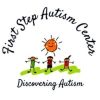Introduction: Autism spectrum disorder (ASD) is a neurodevelopmental condition with a complex interplay of genetic and environmental factors contributing to its development. While genetics plays a significant role, emerging research suggests that environmental factors may also influence the risk of autism. In this blog post, we will delve into the intriguing world of autism and environmental factors, shedding light on the ongoing research and potential links.
The Genetic Puzzle: Genetics is known to be a major contributor to autism risk, with certain genes associated with an increased likelihood of developing the condition. However, the rising prevalence of autism over recent decades has led scientists to investigate whether environmental factors could be playing a role in this increase.
Prenatal and Perinatal Influences: Researchers have identified several prenatal and perinatal factors that may be associated with an increased risk of autism. These include maternal infections during pregnancy, exposure to certain medications, and complications during childbirth. Understanding how these factors interact with genetics is a key focus of ongoing research.
Exposure to Environmental Toxins: Exposure to environmental toxins, such as air pollution, heavy metals, and pesticides, has been studied in relation to autism risk. Some studies suggest that exposure to certain toxins during critical developmental periods may contribute to the development of ASD. Research in this area continues to evolve.
The Role of Maternal Health: A mother’s health during pregnancy can impact a child’s development. Conditions such as maternal obesity, diabetes, and autoimmune disorders have been linked to a slightly increased risk of autism in offspring. Researchers are working to uncover the mechanisms underlying these associations.
Vaccines and Autism: Extensive research has repeatedly debunked the notion that vaccines, including the MMR (measles, mumps, and rubella) vaccine, are linked to autism. Multiple large-scale studies have found no credible evidence supporting this claim. It is crucial to rely on scientific consensus when discussing this topic.
The Complexity of Interactions: It’s important to note that autism is likely the result of complex interactions between genetic susceptibility and environmental factors. Not all individuals exposed to the same environmental factor will develop autism, highlighting the intricate nature of these interactions.
Promoting a Healthy Environment: While research on environmental factors and autism is ongoing, efforts to promote a healthy prenatal environment, reduce exposure to toxins, and support maternal health remain critical for overall well-being, whether or not they impact autism risk.
Conclusion: Autism and environmental factors present a fascinating area of research that is constantly evolving. While genetics plays a central role in autism, environmental factors are being examined for their potential contributions to this complex condition. Continued research in this field is essential for gaining a more comprehensive understanding of autism’s origins and, ultimately, for improving early interventions and support for individuals with autism.
For more information and resources on autism, visit our website at www.fsautismcen.org. Together, we can navigate this journey with knowledge, understanding, and unwavering support.

